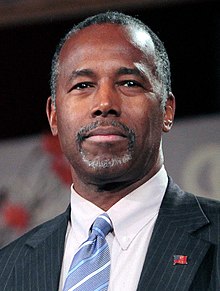http://mobile.nytimes.com/2016/11/1....html?smid=fb-nytimes&smtyp=cur&_r=0&referer=
WASHINGTON Matthew Horn, a software engineer from Boulder, Colo., canceled Christmas plans with his family in Texas. Nancy Sundin, a social worker in Spokane, Wash., has called off Thanksgiving with her mother and brother. Ruth Dorancy, a software designer in Chicago, decided to move her wedding so that her fiancés grandmother and aunt, strong Trump supporters from Florida, could not attend.
The election is over, but the repercussions in peoples lives may be just beginning as families across the United States contemplate uncomfortable holidays or decide to bypass them and relationships among friends, relatives and spouses are tested across the political divide.
Democrats have dug in their heels, and in some cases are refusing to sit across the table from relatives who voted for President-elect Donald J. Trump, a man they say stands for things they abhor. Many who voted for Mr. Trump say it is the liberals who are to blame for discord, unfairly tarring them with the odious label of racist just because they voted for someone else.
Its all one big giant contradiction in my eyes, said Laura Smith, 30, a small-business owner in Massachusetts who was attacked on Facebook by a relative for voting for Mr. Trump. Shes saying to spread the love, Ms. Smith said. But then youre throwing this feeling of hate toward me, your own family member.
Many Democrats harbor their own feelings of being under siege.
It felt like a rejection of everyone who looks like me, said Ms. Dorancy, 29, a naturalized American who immigrated from Ghana about a decade ago. It was a message to me that You are not equal in our eyes. You do not deserve a place in our country.
So she and her fiancé looked at their guest list and decided to hold their wedding in Italy, a distance too far for the relatives to travel. I just dont want them around me on the most important day of my life, she said.
Some relationships remain intact, of course.
Kate Kingery, a Republican in Denver who sells sporting goods, has kept good relations with her Democratic friends, despite their despondence over the election. One is coming to spend a few days in the mountains with her this week. Ms. Kingery, who grew up on a farm in rural Minnesota, said she sympathized with her Democratic friends worries.
I understand peoples fears, I really do, she said. She would not say whom she had voted for. She added: I really dont think its going to be that bad. I dont think they are going to change gay rights, womens rights or other peoples rights.
Conversations on those and other delicate issues can be both important and painful, but the reality of American life is that they are happening ever more rarely. Over the past several decades, the United States has become increasingly segregated by class, with college-educated people marrying, living and socializing apart from less-educated Americans. The result has been that Americans have lost touch with one another, sociologists say, and helps explain why each side is so baffled by the other.
If you went to Thanksgiving dinner 50 years ago, youd be very likely to have dinner with people from a different walk of life, said Robert D. Putnam, a professor of public policy at Harvard and the author of Our Kids, an investigation of class divisions in America. Today, there are far fewer people who are different from us around that table.
As the cultural divide becomes deeper, fewer Americans cross it.
Misty Bastian, 61, an anthropologist at Franklin & Marshall College in Lancaster, Pa., is originally from rural Tennessee. Since serving in the Air Force in the 1970s, she has lived all over the world and earned her Ph.D., two milestones that have set her apart from most of her extended family.
She said that she had sensed a parting of the political ways from her family for a long time, but that her support for Hillary Clinton seemed to be the last nail in the coffin.
The other day, a cousin who had Trump proclivities put a post on Facebook that she described as all about Trump triumphalism.
She felt that the post was directed at her and that its message was: Youre a liberal elitist and I dont have to pretend now that I have to listen to you.
Ms. Bastian added: I feel like Ive been living with a lot of people wearing masks, who have been hiding their true selves, and now with this vote, their true selves are more apparent.
She has kept up visits to Tennessee, but now says she has no desire to go back.
I dont want to be part of the grand narrative that the liberal elite doesnt get the working class, she said. I am from the working class. Im now pretty solidly middle class. But to my relatives, Im elite, over-educated and too well read, an alien.



